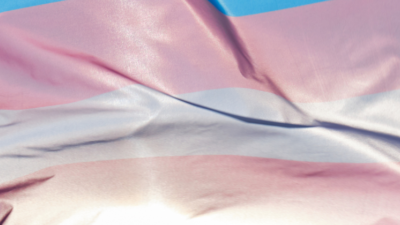How to respond effectively to the Equality and Human Rights Commission’s public consultation
The Equality and Human Rights Commission (EHRC) is consulting on a new Code of Practice for Services, Public Functions and Associations. The new code will have a direct impact on LGBTQ+ people, as well as organisations and service providers.
The information below is designed to help individuals and organisations submit a consultation response. You have until 11.59pm on 30 June 2025 to submit one.
You can make your response as long or as short as you like, and you do not have to answer every question. The important thing is to respond.
The UK Supreme Court ruling
The UK Supreme Court ruling on 16 April 2025 ruled the legal definition of a ‘woman’ for the purposes of the Equality Act 2010 is based on biological sex. This means a trans woman with a Gender Recognition Certificate (GRC) is not considered a woman for the purposes of the Equality Act 2010, and a trans man with a GRC is not considered a man for the purposes of the Equality Act 2010.
This has caused deep concern, and many trans people are feeling deeply worried about the implications of the ruling. Many organisations and service providers are unsure about what this means for them.
When delivering the ruling, the Supreme Court reaffirmed that trans people – with and without a GRC – are still protected from discrimination and harassment under the Equality Act 2010. As such, any statutory Code of Practice must clearly explain how this protection works in practice and provide examples to support inclusion in line with the law.
About the EHRC and the consultation
The Equality and Human Rights Commission (EHRC) is responsible for promoting and enforcing the Equality Act 2010. This includes producing statutory Codes of Practice to support people “to understand the [Equality] Act, exercise their rights, and meet their responsibilities”.
One of the Codes of Practice the EHRC produces is a ‘Code of Practice for Services, Public Functions and Associations’. This outlines the steps that service providers should take to make sure that people with protected characteristics are not discriminated against.
Following the UK Supreme Court ruling, the EHRC has proposed changes to this Code of Practice and is holding a public consultation on these changes. The consultation opened on 20 May, and it will close at 11.59pm on 30 June 2025.
What is the consultation?
Anyone affected – directly or indirectly - can respond to the consultation on the proposed Code of Practice changes, including trans people, the wider LGBTQ+ community, family, friends, legal professionals, service providers and organisations.
The consultation is an opportunity to voice your own, or your organisations, concerns and uncertainty.
A full range of responses, reflecting the unique experiences of all those affected, will help to ensure the final statutory Code of Practice is fit for purpose. It must genuinely help everyone to both understand and exercise their rights and understand and meet relevant obligations.
Use our explainers to shape an effective response
We have created two explainer documents to help you shape your responses. The first document is for individuals and the second is for organisations.
We urge you to read the explainer which applies to you in full before submitting a response, and to really think about the practical implications of the draft Code of Practice.
If you are looking to submit your own personal response, download this explainer for individuals:
If you are looking to submit a response on behalf of your company or organisation, download this explainer for organisations:
Submitting a response
Once you have read our explainers, you can submit a response here.
As well as submitting your response, we recommend downloading and sending your response to your local MP, making them aware of your own, or your organisation’s feedback. You can find your local MP’s email address here.
If you don’t feel able to submit a consultation response, here are some resources provided by LGBTQ+ organisations outlining other actions you could take.
Access support
We know that many people are worried about the impact the proposed changes could have on their lives and the lives of those they care about. If you need support, we urge you to reach out to:





